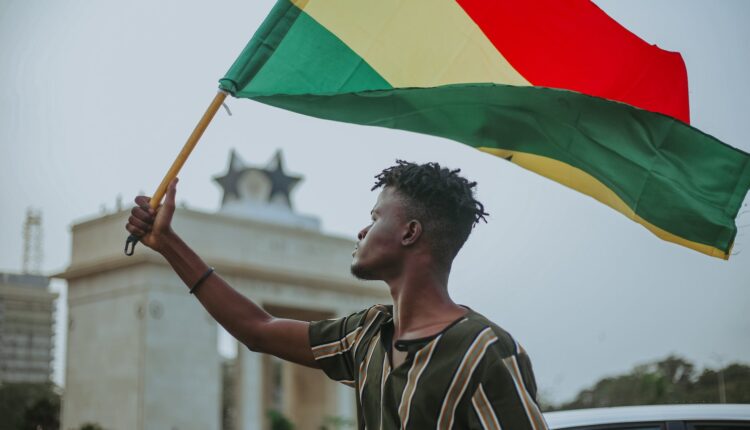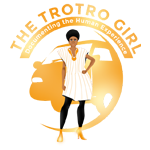
Is the stool weightier than the skin?
I wrote this a few years back but the lesson is still relevant. On a particular day during my undergraduate studies, I had two hours in between lectures. I quickly rushed to my room to cook some rice. Of course, to enjoy some of my roommate’s ever delicious egg stew.
After 30 minutes of waiting, I got my plate and fork ready. But goodness, I plugged in the rice cooker. I would have cried but for the fact that I was not alone in the room. So, I grabbed my bag and was off for my second lecture. At the same time angry, maybe at God for not letting the Holy Spirit prompt me to plug in the rice cooker, lol! God must be tired by now. We blame him for everything.
At a point within the lesson, we were to translate “it’s as good as gold” into French. I would have translated it as “il est bon comme l’or”. However, our lecturer after telling us how he would translate it in his native language, Dagaare, added that “the English love gold but the French love bread. Therefore, in translation, it is important to translate sense and meaning and not just words. Therefore, “it is as good as gold” would translate as “il est bon comme le pain”. I just did not understand why a people would choose bread over gold. Afterall, with gold you can buy as much bread as you want. As weird as this sounded to me, I was happy to return to my room to “massacre” the rice as punishment for disappointing me the first time (lol)!
In translation, it is important to translate sense and meaning and not just words.
During the vacation of that same semester, I took interest in TV3’s Ghana’s Most Beautiful Show. So, one day, I was watching the different durbars held in honour of the ladies representing the various regions. One of the Akan speaking regions gave their lady gold ornaments, kente and beads. I was eager to see how the northern regions would prepare their ladies. To my surprise, my region gave our representative yams, guinea fowls and smocks. I know we don’t have gold but is that all we could offer? Yams and guinea fowl? I was too disappointed to continue watching. So, I got busy with something else and forgot about the show.
I recall these because today I went to school. It was a different kind of school. Without uttering a word, the professor, who has just turned two, managed to give me homework. Apparently, I am the first (proudly) black person he has ever seen. Alone with his grandpa that day, all he wanted was his mama. He kept staring and yet he would not allow me touch him (but the best Ghanaian nkate cake did the trick later on).
He was playing with his toys when something caught his attention. It was a magazine with a black woman on the cover page. He looked at me, back at the magazine, at me again, pointed at the magazine and said “Mama with a smile”. His grandpa and I burst into laughter. We understood his message “Belinda, my mum is not around but yours is right here”. There were other magazines with white women but why did he point to the black woman? Of course, the answer was obvious.
In making comparisons and drawing conclusions, what yardstick do we use? When I looked at the Akan lady’s gold and the Northern lady’s yams and guinea fowl, the first thing I thought of was that “gold is more precious than yam and guinea fowl”. I never considered the cultural contexts. The worth of the yams and guinea fowl was not in how much money they could be exchanged for. Their worth was rather in what they represented. It represented the wealth of the Northern Kingdom. It represented their love and support for the daughter of their land just as the gold and kente of the Akans did.
What about “enstoolment” and “enskinment” of Akan and Northern Chiefs? Does the stool weigh more than the skin? In terms of the cultural value and significance, the pride of the people as far as the stool/skin is concerned can we judge? Should we even judge?
We should appreciate the culture and traditions of others as equally important to them as ours is to us.
In 2019, we held our Independence Day celebrations in Tamale. The Aliu Mahama Sports Stadium was filled to capacity. The chiefs from the region arrived in cars and some on horseback. The comments section on Facebook was full of unnecessary comparison, hate speech and insults. People of some ethnic groups felt that their chiefs were more important because they carried them in palanquins or decorated them with gold ornaments.
But can the reverence we give to chiefs be compared in that manner? Can we compare the value of chieftaincy and traditional leadership only based on such? Perhaps, we can talk about their place or the power they wield now, given the role of the state today.
As Ghanaians with different ethnic backgrounds, we should appreciate the culture and traditions of others as equally important to them as ours is to us. And even if they take their culture more lightly than we think it should, we may express that respectfully.
Unity in diversity takes off from there.

This is an amazing piece. I like reading contents like this.
More love @trotrogirl
Thank you, Francis
Beautify piece to reflect upon and very well presented.
May the Holy Spirit inspire you more
However it’s good to know that we do not have anything like “the Northen Kingdom”. In the North(which is bigger than the southern part of the country in landsize) has lots of kingdoms too.
We have the Mamprugu Kingdom (North East and part of Upper East), Dagbon Kingdom (Northern), Kusaasi Kingdom (Upper East) among many others.
Thank you, Joe
Yelimenge
Barka Yaga zaa